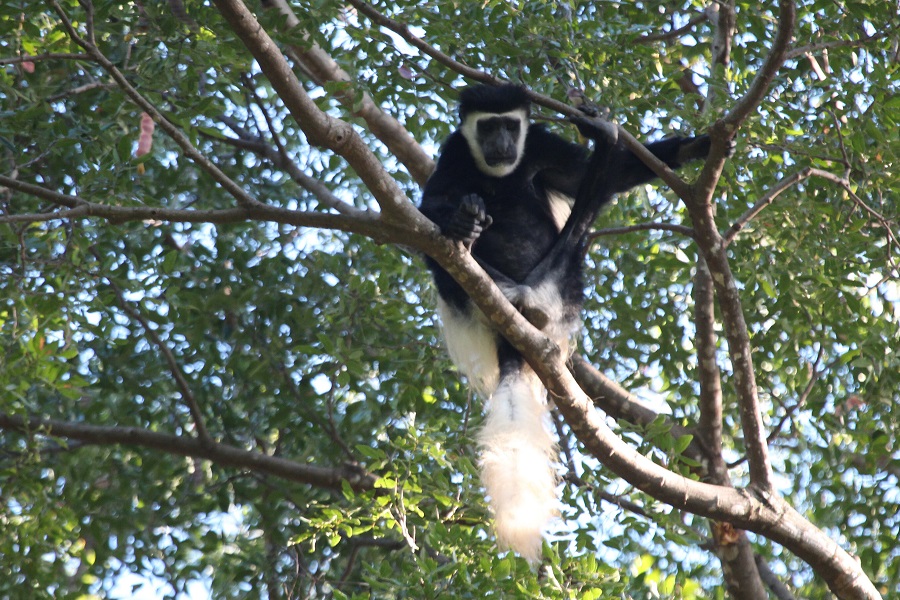11 Dec 2024

Tired Earth
By The Editorial Board

Two thirds of Key Biodiversity Areas (KBAs) in tropical forests are experiencing new temperature conditions as our climate changes, research shows.
KBAs identify the most important places on Earth for species and their habitats.
The study—by Exeter, Manchester Metropolitan and Cambridge universities—assessed 30 years of temperature conditions below the forest canopy in KBAs in tropical forests worldwide.
It found that 66% of KBAs in tropical forests have recently transitioned to new "temperature regimes" (more than 40% of temperature measurements being outside the range previously recorded there).
The remaining 34% are not yet seeing new temperature regimes—and the researchers suggest these places may be vital refuges for biodiversity.
The paper, published in the journal Conservation Letters, is titled "Identifying climate-smart tropical Key Biodiversity Areas for protection in response to widespread temperature novelty." It is published ahead of the United Nations Biodiversity Conference (COP16) in Colombia, which begins on October 21.
"Beneath the canopy of tropical forests, a wealth of biodiversity exists in a very stable climate," said Dr. Brittany Trew, from the Environment and Sustainability Institute on Exeter's Penryn Campus in Cornwall.
"As such, species there are at particularly high risk from new annual temperature regimes because they have evolved under a narrow range of conditions. They may only be able to tolerate a small margin of warming above what they're used to."
The Post-2020 Global Biodiversity Framework includes a draft target that at least 30% of land area globally is conserved by 2030—and specifically identifies KBAs as a core priority for this.
Dr. Alexander Lees, Reader in Biodiversity at Manchester Metropolitan University, said, "The amount of political and economic capital dedicated to safeguarding biodiversity is woefully inadequate.
"Our findings show that the painful process of conservation triage—selecting new protected areas—must therefore consider the impact of ongoing climate changes on those sites in prioritization assessments."
KBAs do not automatically receive formal protection—this is decided by national governments in the areas identified.
The paper highlights that—of the 34% of tropical forest KBAs not seeing new temperature regimes—more than half are not currently protected.
"We need 'climate-smart' policies that protect these vital refuges," Dr. Trew said.
The researchers used temperature measurements, satellite data and a microclimate model to assess near-ground hourly temperatures across the world's tropical KBAs.
The proportion of KBAs in Africa and Latin America with new temperature regimes was particularly high (72% and 59%), while fewer KBAs across Asia and Oceania shifted to new temperatures (49%).
Some KBAs across Latin America (2.9%)—and a small number in Asia and Oceania (0.4%)—have recently transitioned to almost entirely new temperature regimes (more than 80% of temperature measurements outside the previous range.
In Latin America, these KBAs were all located in Ecuador, Colombia, Venezuela or Panama, with the tropical Andes particularly affected.
Source : phys.org
Comment